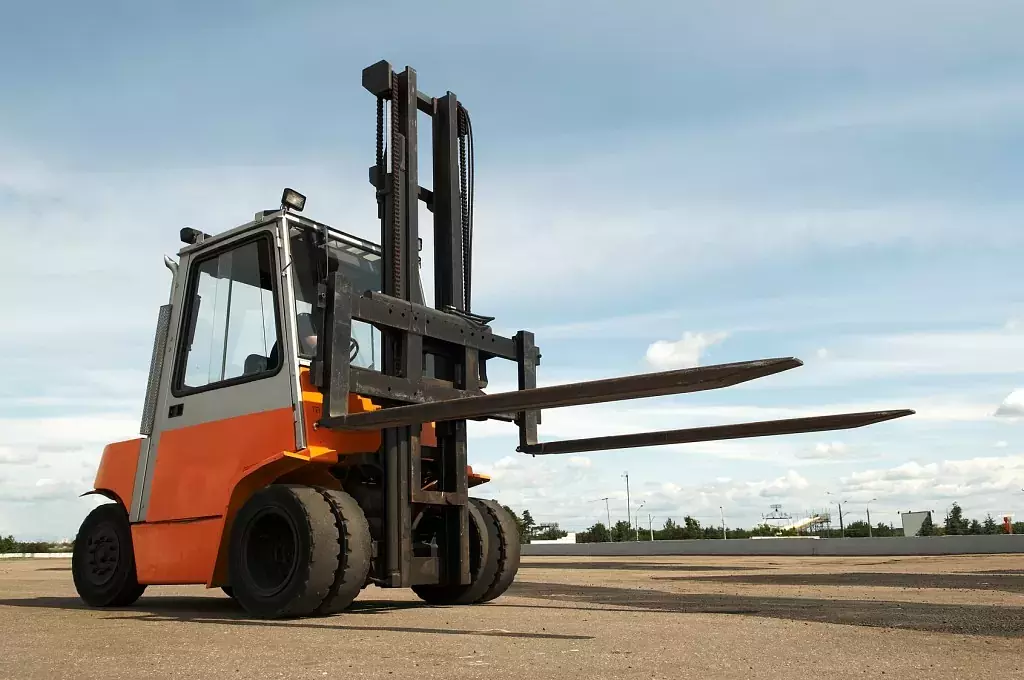 Forklifts are a technological wonder, a device that has been used to improve and catalyze material handling processes. Whether it be a factory floor in the loading bay or warehouse mezzanines, forklifts can help employees remove and store heavy, bulky items with little trouble. The same principle applies to using a forklift outdoors. However, outdoor environments are all the more challenging and offer new conditions that can be all the more adverse to even the most seasoned professional. Here are four basic tips both novice and experienced forklift drivers can utilize to maximize their machinery in outdoor applications:
Forklifts are a technological wonder, a device that has been used to improve and catalyze material handling processes. Whether it be a factory floor in the loading bay or warehouse mezzanines, forklifts can help employees remove and store heavy, bulky items with little trouble. The same principle applies to using a forklift outdoors. However, outdoor environments are all the more challenging and offer new conditions that can be all the more adverse to even the most seasoned professional. Here are four basic tips both novice and experienced forklift drivers can utilize to maximize their machinery in outdoor applications:
Pay Attention!
As mentioned, working outdoors boasts a whole new set of potential troubles and difficulties. For this reason forklift operators should always keep their eyes focused in front of them, constantly surveying the site continuously to recognize potential pitfalls and hazards. These hazards can range from wildlife to stray branches. Maintaining free hands at all times is also a mandate. To avoid an accident or in the event that an urgent and swift maneuver must be executed, forklift operators are required to stay free of using electronic devices. These various instruments can serve to be a formidable distraction and further increase the risk vehicle mishandling or the inability to perceive a wide range of obstacles. Be alert and be aware from the start of the project until completion.
Be Mindful Of The Weather
The weather can have a great influence on operations. When working outdoors it is always a struggle between man and the weather. Therefore, it is essential that operators pay attention to the weather. Rain or snow can change the site in moments. Terrain when soaked by rain can flood or provide poor traction due the accumulation of mud. Additionally, snow and ice can also compromise the ground itself and host a wide array of possible troubles. Prior to commencing in outdoor forklift operations, check the weather for the day, it is best to work in the most optimal conditions possible. In the event of inclement weather, it may be best to postpone or cancel any initiative.
Check All Fluids and Tires
Poorly inflated tires and a lack of essential fluids prior to use can be exceptionally hazardous. First, check the PSI on all tires with an appropriate tire gauge. It is worth mentioning that overinflated tires are more like to explode and even cause a vehicle fire. Conversely, underinflated tires run the risk of going flat and thus the elements can make it even more difficult to amend or repair. Play it safe, check all tires before use and venturing out. In addition, check antifreeze and oil to ensure they are at proper levels. This practice prevents the engine from overheating or freezing in challenging winter and summer environments which can be taxing on even the most well maintained machinery.
Communication Is Essential
It is imperative for the forklift operator and team members to establish and maintain a fluid stream of communication. As we have covered previously, the outdoors pose new threats to the overall efficiency of the operation and the welfare of the crew. Thus, it is important that forklift operators verbally convey all intents at all times. In addition, it is fundamental for crew members to convey any troubles to the forklift operator. Sometimes, forklift operators may miss potential hazards due to blind spots, crew members are encouraged to show no timidity in gaining an operators’ attention if there is any chance that a danger has failed to be recognized by an unsuspecting forklift operator. Communication is paramount.
